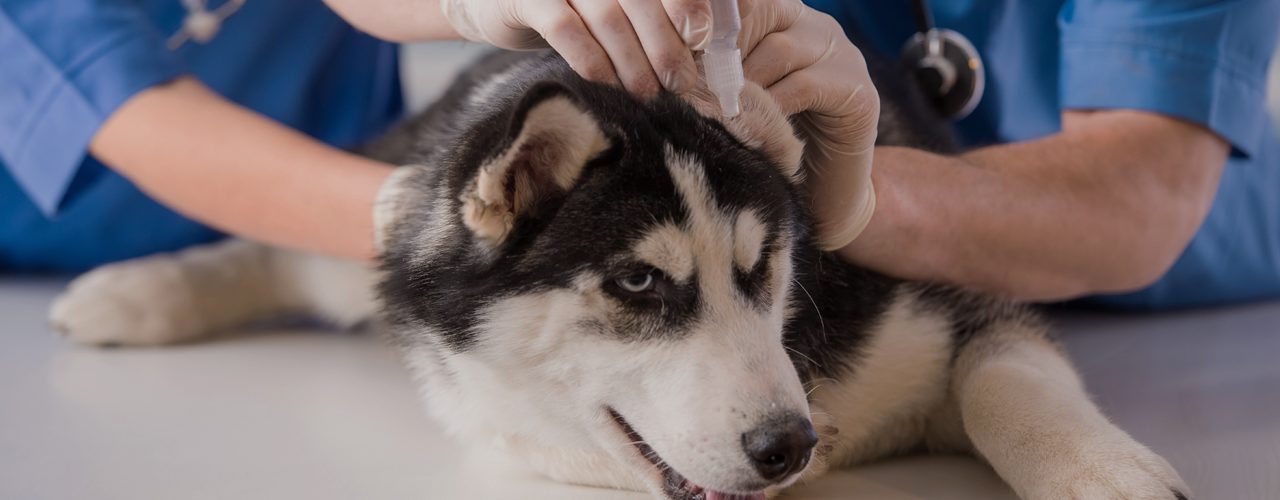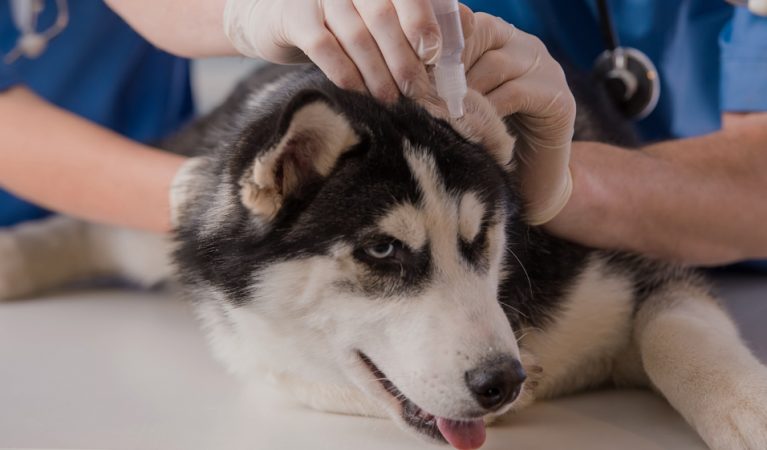
Why Regular Worming of Dogs is Important
Many puppies are born with the roundworm Toxocara canis infection, transmitted to the pups through placenta and milk. The larvae travel through the blood stream to the lungs, via liver in case of oral infection, are coughed up and swallowed, they then settle in the intestines and start laying eggs by the time the puppy is merely three weeks old. Worms can interfere with the nutrient absorption turning a puppy thin and pot-bellied; larger numbers can lead to obstruction of the intestine and death. Dogs are infected through eating hatching eggs, eating prey or uncooked meat containing worm larvae. Some puppies have been shown to pass as many as up to 2 million worm eggs in faeces in a day and some dogs have been shown to pass worm eggs in spite of worming treatment every three months. The worm eggs can survive for more than a year in the environment.
The hookworm Uncinaria stenocephala, is another type of intestinal worm, is common in dogs that have access to grass runs. The infection is contracted by ingesting larvae hatched from the hookworm eggs in the environment. A less common species Ancylostoma caninum is known to cause infection with the larvae directly entering through the skin. The even less common whipworm Trichuris vulpis lives in the large intestine with the head buried in the intestinal wall.
Unless the worm infestation is heavy, adult dogs may only show subtler eff ects like poor hair coat.
The heart-and-lungworm Angiostrongylys vasorum, and the lungworm Crenosoma vulpis infections are contracted by dogs from eating infected slugs and snails. In case of A. vasorum adult worms live within arteries of lungs causing a variety of problems including blood clotting disorders presenting as bleeding from the nose or mouth or sudden onset neurological signs due to bleeding within the brain. Occasionally, larvae reaching the eyeball can lead to serious eye diseases. In case of C. vulpis adult worms live in bigger airways, with heavy infection causing persistent cough, exercise intolerance and breathing di culties. The greyhounds are known to be particularly susceptible to this infection.
It is obvious from the above that to safeguard the health of our pet dogs, regular treatment against these worms is extremely important. But it is even more important that to safeguard the human health in general and the family health in particular, as there is some evidence that we are more likely to contract parasitic infections from our own pets.
Whereas the regularity of this treatment is very important, it is even more important to use medicines that can assure high level of e cacy against the widest range of above mentioned parasites. Though cheaper, over- the- counter medicines are too basic to provide the required e cacy and off er the required assurance.
If you need further information on the right approach to worming your pet dog, please do not hesitate to contact me on 01257 463 142.
All enquiries please call 01257 463142 or make an Online Enquiry



